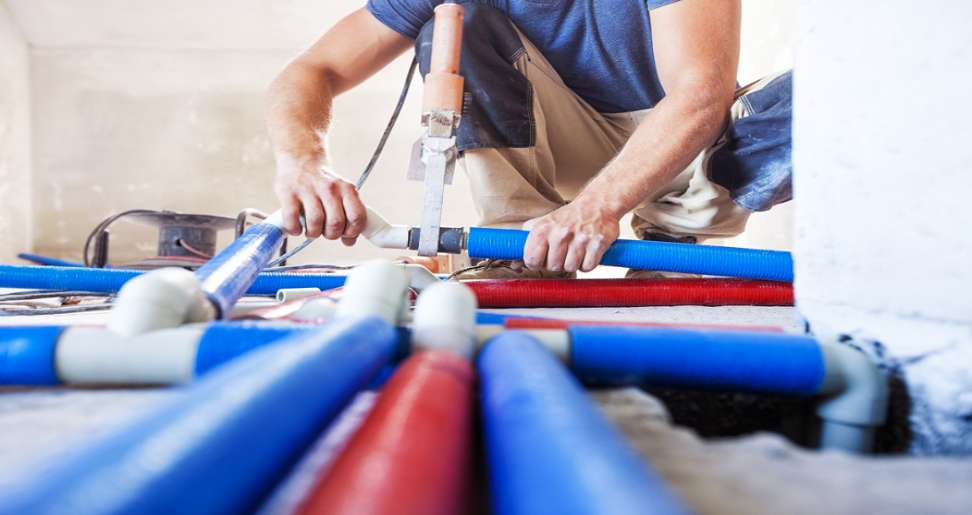Re-piping a building is a complex and significant undertaking that requires specialized knowledge and skills. Whether it’s a residential home or a commercial property, re-piping ensures the integrity and functionality of the plumbing system. This article delves into the crucial role a plumbing contractor plays in the success of re-piping projects, emphasizing their expertise, planning, execution, and post-project support.
Understanding Re-Piping
Re-piping involves replacing the existing pipes in a building with new ones. This process can be necessary for various reasons, including:
- Aging Pipes: Over time, pipes deteriorate, leading to leaks, corrosion, and reduced water quality.
- Frequent Leaks: Persistent leaks indicate that the pipes are beyond simple repairs.
- Water Pressure Issues: Low water pressure can be a sign of corroded pipes.
- Rusty or Discolored Water: This is often a result of rusting pipes and can affect water quality.
- Building Renovations: Upgrading the plumbing system to match new building standards or layouts.
The Role of a Plumbing Contractor
A plumbing contractor is a licensed professional who specializes in installing, maintaining, and repairing plumbing systems. Their role in re-piping projects is multifaceted and critical to the project’s success.
Assessment and Planning
Before any work begins, the plumbing contractor conducts a thorough assessment of the existing plumbing system. This includes:
- Inspecting Pipes: Using advanced tools and techniques to assess the condition of the pipes.
- Identifying Problems: Diagnosing issues such as leaks, corrosion, and blockages.
- Developing a Plan: Creating a detailed plan for re-piping, including materials, timeline, and budget.
Expertise in Material Selection
Choosing the right materials is crucial for a successful re-piping project. Plumbing contractors have in-depth knowledge of different piping materials, such as:
- Copper Pipes: Known for their durability and long lifespan.
- PEX Pipes: Flexible, resistant to scale and chlorine, and suitable for retrofitting.
- CPVC Pipes: Resistant to high temperatures and chemicals.
- Galvanized Steel: Traditionally used but prone to corrosion over time.
The plumbing contractor evaluates the specific needs of the building and selects the most suitable material, ensuring longevity and efficiency.
Permits and Compliance
Re-piping often requires permits and adherence to local building codes. Plumbing contractors handle all the necessary paperwork and ensure that the project complies with regulations. This includes:
- Obtaining Permits: Securing the required permits from local authorities.
- Adhering to Codes: Ensuring that the re-piping work meets all local and national plumbing codes.
- Scheduling Inspections: Coordinating with inspectors to ensure that the work is done correctly and safely.
Execution of the Re-Piping Project
Once the planning and permits are in place, the plumbing contractor oversees the execution phase. This involves:
- Removing Old Pipes: Carefully removing old pipes without causing damage to the building structure.
- Installing New Pipes: Precisely installing new pipes according to the plan, ensuring proper alignment and connections.
- Testing the System: Conducting pressure tests and other checks to ensure that the new system functions correctly and efficiently.
The plumbing contractor’s expertise ensures that the re-piping is done with minimal disruption to the occupants and that the new system operates flawlessly.
Troubleshooting and Problem-Solving
Re-piping projects can encounter unexpected challenges, such as:
- Structural Obstacles: Navigating around building structures that may obstruct pipe installation.
- Unforeseen Damage: Addressing any additional issues discovered during the re-piping process.
- System Integration: Ensuring that the new pipes integrate seamlessly with the existing plumbing fixtures and systems.
A skilled plumbing contractor is adept at troubleshooting and problem-solving, ensuring that the project stays on track and within budget.
Post-Project Support and Maintenance
After the re-piping project is completed, the plumbing contractor provides ongoing support and maintenance, including:
- System Check-Ups: Regular inspections to ensure the new pipes are functioning properly.
- Maintenance Plans: Offering maintenance plans to keep the plumbing system in optimal condition.
- Emergency Services: Providing emergency services in case any issues arise post-installation.
This continued support helps in maintaining the integrity of the new plumbing system and ensures long-term satisfaction for the property owner.
Conclusion
Re-piping is a significant project that demands the expertise of a professional plumbing contractor. From initial assessment and planning to execution and post-project support, the role of a plumbing contractor is indispensable. Their knowledge of materials, adherence to regulations, problem-solving skills, and ongoing support ensure that re-piping projects are completed successfully, providing a reliable and efficient plumbing system for years to come. When considering a re-piping project, enlisting the services of a qualified plumbing contractor is essential for achieving the best results.
Also Read:-
- What Is Methstreams? How To Use It?
- Understanding Deductions on Your Paycheck Stub
- Burlington Coat Factory Hours – What Is The Time Of Opening And Closing?

